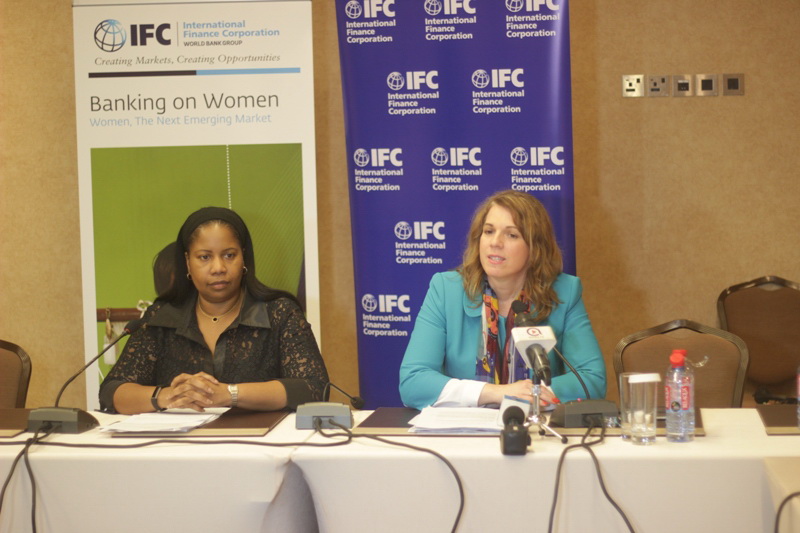
IFC takes steps to roll out Banking on Women programme
The International Finance Corporation (IFC) has initiated steps to introduce the Banking on Women Programme, its custom product that supports women entrepreneurs in the Ghanaian banking sector.
The product when introduced, is expected to encourage local banks to tap into the large and profitable female customer segment, particularly in the agriculture and agribusiness sector.
At the launch of the initiative in Accra, Ms Jessica Schnabel, the Global Product Head of Banking on Women, said the programme, which works with other banks across the world, has shown that women customers, while they present an enormous opportunity for banks, are under-served.
Globally, there is a $1.5 trillion credit gap between women entrepreneurs and their male counterparts. At the same time, 870 million women are expected to participate in the economy for the first time in 2020.
Women also own 30 per cent of registered Small and Medium Enterprises (SMEs) globally and form an insurance market of $1.7 trillion.
In sub-Saharan Africa, the financing gap for serving the women’s market stands at 49 billion dollars, while an estimated seven million women own micro, small and medium enterprises.
These figures present an opportunity but majority of women entrepreneurs in SSA are constrained or partially constrained from accessing financing.
Ms Schnabel said the IFC Banking on Women programme was thus aimed at investing in financial institutions and working with them by providing expertise and advisory service solutions to build and launch programmes for differentiated women customer segments including entrepreneurs, individuals, family and community members.
“When banks seize the opportunity to finance and provide value to women customers, banks increase their profitability,” she said.
Ms Ronke-Amoni Ogunsulire, IFC Country Manager for Ghana, Burkina Faso, Niger and Togo, answering a question on how rural women, who form the majority of the labour force in the Ghanaian agricultural sector, can access finance in the Banking for Women programme, noted that ensuring their access was a challenge.
She said many financial institutions were not focused on the agriculture and agribusiness sectors for good reason.
The IFC would thus use the knowledge and tools at its disposal to bring ideas from other countries to help establish it Ghana.
“For us at IFC, agribusiness is very important for us and we’re looking for different ways of reaching the small producers,” she said, adding that in other places it worked through cooperatives and large companies to identify and offer products to such women.
She said the IFC was currently looking for financial institutions to lead the Banking on Women programme in Ghana, and had met with representatives from local banks to discuss the programme, adding that it would first focus on the current partner-banks in its portfolio.
The IFC, she said, had invested about $4 billion in Ghana so far, with about $750 million invested last year and was excited about rolling out the Banking on Women programme in the country.
Source: GNA